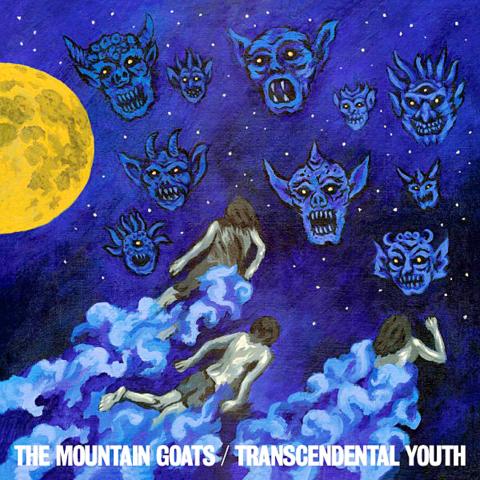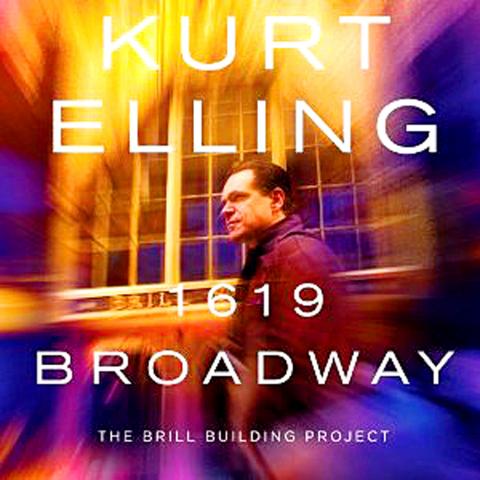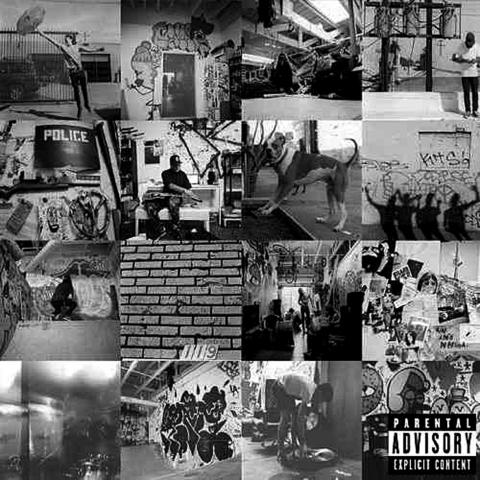Advice on survival, terse portraits of marginal lives, glimpses of faith and epigrams of despair — “I’m still here/But all is lost” — share Transcendental Youth, the 14th studio album by the songwriter John Darnielle’s band, the Mountain Goats.
Those have all been regular touchstones among the hundreds of songs Darnielle has released since 1991. Through the last two decades, he has moved from low-fi cassette recordings to studio productions to leading a stable band, a sinewy trio with Peter Hughes on bass and Jon Wurster on drums behind Darnielle on guitar (usually acoustic) or keyboard (usually piano). Their folk-rock can be breezy or bleak, and the band keeps getting better at making music a full partner with lyrics in telling the stories.
Transcendental Youth isn’t exactly a concept album, but it is bookended, beginning and ending with directives and affirmations. “Do every stupid thing that makes you feel alive,” Darnielle sings in Amy aka Spent Gladiator 1, written after the death of Amy Winehouse. Many songs later, Spent Gladiator 2 counsels, “Stay in the game/Just try to play through the pain,” before the album closes with its title song, Transcendental Youth, which finds its transcendence in music.

In between are telegraphic, often cryptic sketches of people who have ended up alone: thugs about to be murdered, a starving homeless person, an artist turned recluse, a mental patient with visions. The upbeat Harlem Roulette glimpses the 1950s pop hit-maker Frankie Lymon at his last recording session before he would overdose on heroin, and then a radio listener in the future who “remembers that you’re gone.” The sparse Until I Am Whole is a study in depression that ends with the singer alone on a bench, digging his fingernails into his hands, musing, “I think I’ll stay here/Till I feel whole again/I don’t know when.”
The band used to simply propel Darnielle’s succinct melodies and his friendly but insistent voice; now, it has finer calibrations. In Night Light, for instance, the narrator’s paranoia banks down and flares up with a pattering snare-drum beat and chords that shift from sustain to syncopation. There’s also a new element on this album: horn arrangements by Matthew E. White that can be pop fanfares, an elegiac chorale or a plush big band. On this album, the music is as much an accomplice as an accompaniment.
— JON PARELES, NY Times News Service

“There’s a melody in stillness I can’t seem to play,” Kurt Elling sings yearningly, somewhere along the break in his natural range, during one of several muted but breathtaking moments on 1619 Broadway: The Brill Building Project. The lyric is his own, part of an extended flourish following the bridge of So Far Away, the Carole King song. And as is so often the case with Elling, the artistry lies in some intangible harmony of musical arrangement, interpretive detail and sheer vocal expression.
When any one of those elements skews the balance, the result can feel stagy or arch, overripe or overworked. So 1619 Broadway might seem, on the surface, like a perilous exercise. As the title suggests, it’s a concept album dedicated to the Midtown Manhattan pop factory known best for its songwriting teams. The repertory amounts to a mother lode of boomer nostalgia, and Elling could easily have made it solicitous or cloying.
As if to disarm that preconception, the album opens with a taut, harmonically unsettled arrangement of On Broadway, the striver’s anthem still synonymous with its greatest steward, George Benson. Prefaced by an atmospheric montage of rejections, the track soon yields to Elling’s assured delivery, a series of staccato bursts and swooning gusts meant to underscore his resolve.

He sounds unstoppable, as does his current band, featuring the pianist-arranger Laurence Hobgood, the guitarist John McLean, the bassist Clark Sommers and the drummer Kendrick Scott. Here and on a few other tunes, like I’m Satisfied, originally recorded by Lou Rawls, and Tutti for Cootie, a Duke Ellington chestnut, singer and background achieve a swinging symbiosis with the material. Elsewhere it gets a little hit-or-miss.
Perhaps a listener of stalwart Bensonian allegiance — the kind of person who has given some thought to a Smooth Jazz Cruise — might find something to like about this version of Sam Cooke’s You Send Me, which feels suffused with candlelight and bath oils. I doubt there’s anyone who could find genuine wit in Elling’s version of the Coasters’ Shoppin’ for Clothes, with a chummy assist from Christian McBride — or much satirical edge in his cover of the Monkees’ Pleasant Valley Sunday, despite its zombie references and jagged 7/8 meter.
But what works best here works gorgeously: So Far Away, and a stealthily creeping I Only Have Eyes for You, and especially the stark reading of Paul Simon’s American Tune that now stands as one of Elling’s purest and most restrained performances. He puts a special ache into the line “So far away from home,” which concludes the first verse: it’s an intriguing echo, given that Elling left his native Chicago for New York City four years ago. To quote another lyric handled gingerly on this album: doesn’t anybody stay in one place anymore?
— NATE CHINEN, NY Times News Service
The dead-end kids are having their day. Righteous fury radiates outward on 119, the latest from the anarcho-hardcore invigorators in Trash Talk, who are vigorous and humane in equal measure.
But considering how committed to form and mode this band has been — agro bursts of guitar and drum, vocal growls delivered with abandon — there is a whiff of concession on this album. 119 is 22 minutes long, almost an eternity by the standards of a group that once put out nine-second songs. That’s because 119 stops to breathe in a way that this group’s earlier releases haven’t.
Eyes & Nines (Trash Talk Collective), its 2010 breakthrough, was tight and claustrophobic and nasty and exhausting, like collapsing on the pavement after a desperate sprint.
119 stops speeding to have some conversation. Lee Spielman, the charismatic and intense frontman, is far more legible a singer here than he’s ever been. That lucidity is in service of some of his most pointed lyrics. “Are you bored of your boredom?” he asks at the top of Eat the Cycle, the album’s first song, continuing, “Fingers feeling worked to the bone? Afraid of the life that you’ve made? You’re not alone.”
This is Trash Talk’s first release on Odd Future Records, the label founded by the divisive Los Angeles hip-hop crew. (The Odd Future rappers Tyler, the Creator and Hodgy Beats appear on Blossom & Burn.)
That label gets distributed through the Sony system, which means that 119 is likely the only major label album this year to address homelessness (Exile on Broadway) or to include a vintage Trash Talk-style song like Uncivil Disobedience, which is 76 seconds long and opens with the command, “Occupy all streets!”
The real tension, therefore, is between inclusion and interiority. Trash Talk comes from the exceedingly dogmatic and rigorous world of hard-core, but has widened its appeal, even as it’s largely kept its sound intact. 119 though, suggests this group’s version of Metallica’s self-titled 1991 crossover album (sometimes called The Black Album), which is the release that took that band from kings of a small world to ambassadors to a bigger world and, to some, traitors.
That album sold 15 million copies; this one won’t. But it’s still an eye-opening document of a wise, private group beginning to learn how to be porous and starting to let the outside in — only to assault it with resentment and hope, but still.
— JON CARAMANICA, NY Times News Service

June 2 to June 8 Taiwan’s woodcutters believe that if they see even one speck of red in their cooked rice, no matter how small, an accident is going to happen. Peng Chin-tian (彭錦田) swears that this has proven to be true at every stop during his decades-long career in the logging industry. Along with mining, timber harvesting was once considered the most dangerous profession in Taiwan. Not only were mishaps common during all stages of processing, it was difficult to transport the injured to get medical treatment. Many died during the arduous journey. Peng recounts some of his accidents in

“Why does Taiwan identity decline?”a group of researchers lead by University of Nevada political scientist Austin Wang (王宏恩) asked in a recent paper. After all, it is not difficult to explain the rise in Taiwanese identity after the early 1990s. But no model predicted its decline during the 2016-2018 period, they say. After testing various alternative explanations, Wang et al argue that the fall-off in Taiwanese identity during that period is related to voter hedging based on the performance of the Democratic Progressive Party (DPP). Since the DPP is perceived as the guardian of Taiwan identity, when it performs well,

A short walk beneath the dense Amazon canopy, the forest abruptly opens up. Fallen logs are rotting, the trees grow sparser and the temperature rises in places sunlight hits the ground. This is what 24 years of severe drought looks like in the world’s largest rainforest. But this patch of degraded forest, about the size of a soccer field, is a scientific experiment. Launched in 2000 by Brazilian and British scientists, Esecaflor — short for “Forest Drought Study Project” in Portuguese — set out to simulate a future in which the changing climate could deplete the Amazon of rainfall. It is

The Taiwan People’s Party (TPP) on May 18 held a rally in Taichung to mark the anniversary of President William Lai’s (賴清德) inauguration on May 20. The title of the rally could be loosely translated to “May 18 recall fraudulent goods” (518退貨ㄌㄨㄚˋ!). Unlike in English, where the terms are the same, “recall” (退貨) in this context refers to product recalls due to damaged, defective or fraudulent merchandise, not the political recalls (罷免) currently dominating the headlines. I attended the rally to determine if the impression was correct that the TPP under party Chairman Huang Kuo-Chang (黃國昌) had little of a